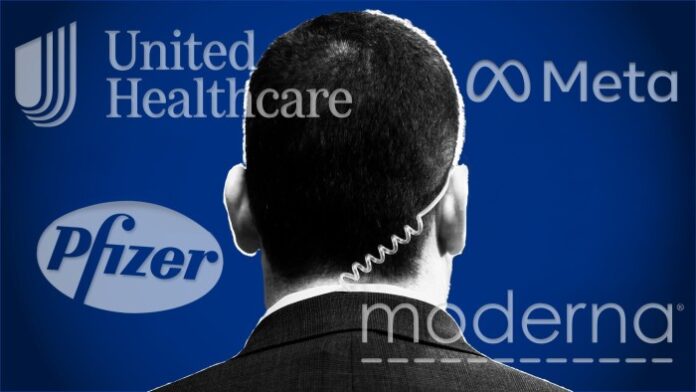Large corporations hurried to evaluate the security measures in place for key employees following the murder of a US insurance executive in New York, sparking widespread concerns about corporate security.
Security heads on both sides of the Atlantic quickly mobilized after the shooting on Wednesday, exchanging information and reaching out to specialized firms for guidance on protecting top executives, according to industry insiders.
The heightened focus on corporate security comes in the aftermath of the fatal shooting of Brian Thompson, the leader of UnitedHealth Group’s insurance division, while he was en route to a corporate event in midtown Manhattan.
New York authorities launched a wide manhunt for the shooting suspect, describing the incident as a deliberate, targeted attack. Bullet casings discovered at the scene were marked with the words “deny,” “defend,” and “depose,” potentially referencing a book about insurers rejecting claims.
The assault on a prominent American executive prompted numerous security officials at major US and UK companies to convene on Wednesday, seeking to understand their vulnerabilities and ways to address them, as stated by Dave Komendat, a former security executive at Boeing.
Brian Stephens, a former security official at Bank of America who now works at Teneo consultancy, noted that the shooting served as a harsh wake-up call and heightened attention on security measures that had been under discussion for some time.
Allied Universal, a leading security firm, reported a surge in inquiries from current and prospective clients following the incident on Wednesday, according to Glen Kucera, head of the group’s enhanced protection services.
UnitedHealth, a reputable company providing healthcare and insurance to millions of Americans, did not disclose its security spending prior to the shooting on Wednesday.
While some executives, like CEO Andrew Witty, may have minimal security detail, precautions such as using corporate aircraft for travel are recommended for safety measures. However, UnitedHealth declined to comment on its security arrangements.
In certain industries, such as social media, or for executives with high public profiles like Jamie Dimon of JPMorgan Chase, personal security is a standard practice.
Businesses allocate substantial budgets for securing top executives, with figures often disclosed in regulatory filings. Companies like Meta, Pfizer, and Moderna have notably increased security spending for their senior executives following specific threats or high-profile events.
Protests and global events impacting businesses have also driven the demand for heightened security measures, reflecting the evolving landscape of corporate security.
The killing of an executive in Manhattan has drawn unparalleled attention, prompting businesses to review and enhance their security protocols in light of potential threats.
Additional reporting by Josephine Cumbo and Ortenca Aliaj in London, Laura Pitel in Berlin, and Joshua Franklin in New York




